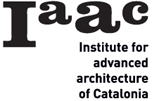
Redefining Prosperity: Tell us what makes us happy. People are sheep. Some architects believe it is their responsibility to play god, and developers/corporate entities are hustlers. Society seems to have an attachment to the word “sustainability,” but considering all of the initiatives we propose, there is still a lot of waste, disfunction, and decline. Buildings don’t actually function the way they are supposed to, and prototypes are produced and reproduced, all while their architects are discouraged from using recycled materials. When its all done photos go in a digital portfolio and models go in the trash. In a consumer culture, we equate good and expensive, in an architects world selling an idea to a client is, at the end of the day, what pays the bills, so what seems to be “sustainable” needs to look good, even if it doesn’t work. How can we be sustainable if the environment within which we learn and work doesn’t follow that model?
Unless institutions can become incubators for creativity as well as encourage students to think about the impacts of their choices, there can be no catalyst for behavior change. As a non architect I see an interesting shift from the ideas that architecture encompasses and reality. During my undergraduate and graduate programs, architects spent a lot of money on prototypes that were never used beyond studio presentations. My question is: what should we do to address this issue? Should architects create more prototypes, while asked to debate the possibility of sustainability without someone gaining financially? I think the problem goes much deeper than the developer and the architect.
That said, there are people, places, and world wide events that want to create a way to better manage our future by creating a culture of civic responsibility, self reliance. The future is going to be a place where resources are limited. Does the answer to our problems lie within buildings? No. One possible answer may be that we, as a society, needs to pay closer attention to the materials used, and improve the approach to design in order to lessen our impact and align our needs as a society with the needs of our world. But unless we start collecting rain water to take showers and get “off the grid,” someone will profit and nothing will change.
Buildings are an integral part of civic infrastructure, I don’t believe they can be taken out of their current context. Technology has come so far in the past 100 years, but we continue to make the same mistakes when it comes to the design of buildings, cities, transportation, and ultimately understanding the expectations and incentives of people.
But then again, people and their environments have always been misunderstood. 
